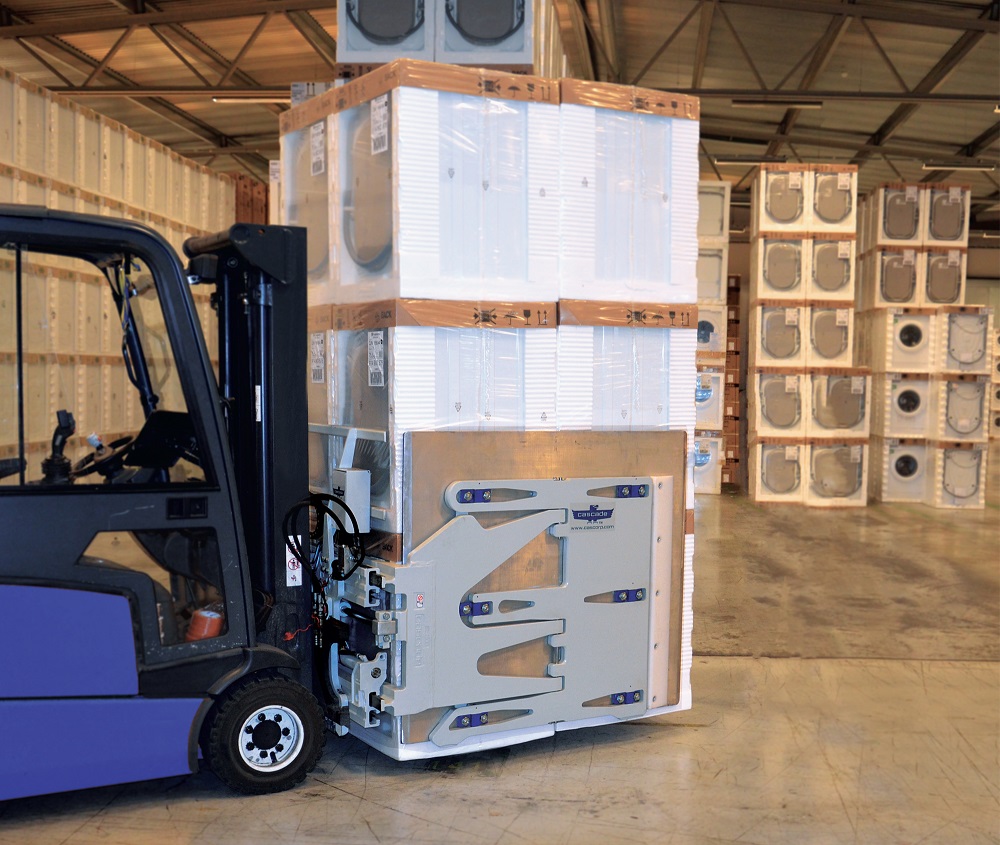Forging the Future
12th July 2016

The Cascade Corporation has come a long way since its humble beginnings as a small metals workshop in Portland, Oregon, USA in the 1940s. Its growth since has shown a consistent upward curve and the company still based in Portland can claim true global status as a supplier of attachments and forks (65% of its business is the former, 35% the latter) to the materials handling market. Senior Vice President Davide Roncari tells Logistics Business that the company is positive on all fronts. Logistics is really starting to pick up and Asia needs growth, he reports, confident that Cascades wide range of solutions will find customers due to his ability to offer bespoke service in an increasingly flexible world. We are custom engineers, he explains.
The spectrum of innovation on show from the company at CeMAT was impressive. It included a paper roll clamp offering damage-free roll handling with improved efficiency; a White Goods clamp with improved force distribution and electronic clamping system allowing pallet-free handling (with obvious savings in consequence); a rugged forging manipulator for furnace operation and, of course, custom forks. Common to the new products is energy efficiency, partly due to new hydraulic systems, while the lighter clamp, for instance, put less strain on the truck and therefore allows it to shoulder a bigger load. Also notable, though not a brand-new product, are Cascades DAGS, magnetic fork covers that protect metal and wood products during handling. Roncari explains that, as well avoiding costly pallet damage, the companys attention to detail in such items allows anti-slip, anti-noise capability that improves warehouse management and operations. Fifteen thousand have already been sold, he confides.
As the company is such an established force, I ask Roncari how it has adapted to the changing needs of the market. The main changes in recent times are the growth of automation and customisation and the emphasis on the environment, he muses. As I say, we are custom engineers. So how does a premium brand capable of such bespoke offerings position itself against cheaper Far-East entrants into the market? We are still the cheapest in the long run, he says. You have to look at it over three to five years. It is not just about price it is about residual values, it is about warranties lasting for two years rather than one in the case of a new attachment or for one year rather than six months in the case of the used model.
Then we have our Buyback programme. That means two things the customer can buy an attachment with a reduced capital investment and it also shows our own commitment to our product, because we stay involved with the lifecycle of the truck attachment. Our view is clear and obvious as far as we are concerned, everyone knows that Cascade is very reliable , the premium product, but how do you explain that to a customer? We have been in business for 73 years so clearly we have our reputation to uphold.
Do Cascade intend to seek revenues from aftersales servicing, as other players in the market are doing? We are not going to take revenues from dealers or OEMS, he replies firmly. Thats their business and they are our customers it is not our proposition to deal with the end users.

